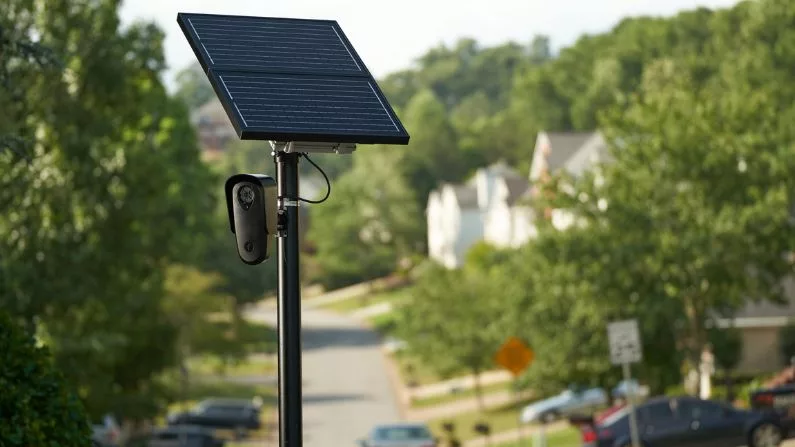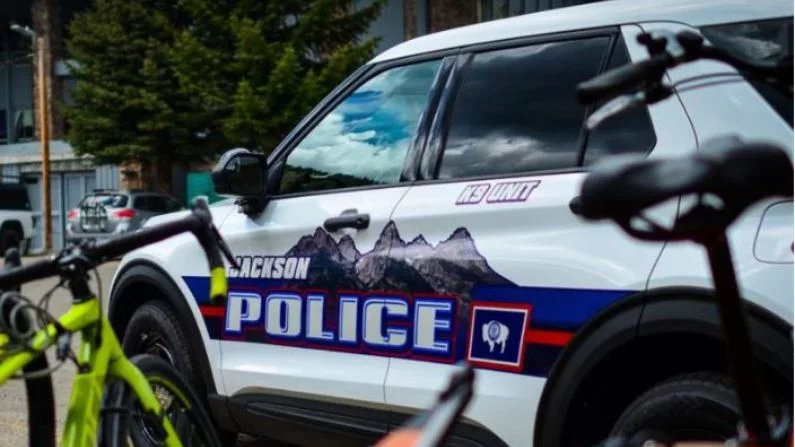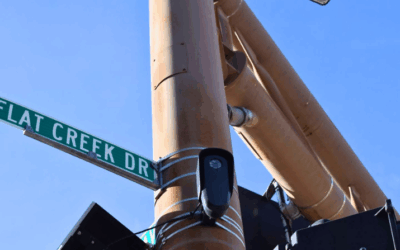Jackson police are on track to install cameras to catch criminals.
Thirty solar-powered cameras will soon be placed around town square and at main intersections. The goal is to take photos of license plates to alert law enforcement when stolen cars — or other suspected vehicles — come through town.
But they won’t start rolling 24/7 until the town council gives them the final stamp of approval.
“We are not treating this as though it’s a light subject,” Councilmember Jessica Sell Chambers told constituents on a Wednesday Zoom call. “Everyone appeared or seemed to be going into this with eyes wide open.”
Groups such as the American Civil Liberties Union oppose any use of the cameras, referring to them as a “mass surveillance system of Orwellian scope.”
Still, town councilors voted unanimously last week to move forward with a policy for operating the cameras. The plan is to give police the ultimate go-ahead in the next few months.
Councilor Arne Jorgensen originally opposed installing the cameras due to monetary and privacy concerns, but he changed his mind.
“So I feel good about the ability for us to manage this in ways that we can not on a private level throughout our community and, frankly, throughout our country,” Jorgensen said, referring to the hundreds of other cameras already installed in businesses.
Community concerns
Despite the town’s efforts to ease community concerns about privacy, some are still worried.
Attorney Mark Jackowski told town officials he’s uneasy about federal officials requesting the information.
“You have a nationwide surveillance system right there to be abused,” Jackowski said in the Zoom meeting. “That’s what you set up.”
The cameras come from rising tech giant Flock Safety, which has installed them in over 3,000 communities nationwide.

Flock Safety representatives say the cameras can deter criminals from coming to Jackson. (Flock Group Inc.)
Town staff say that only local police will have access to the data when they open criminal investigations, though other entities can request it for felony investigations — with the police chief typically having final say over what they share.
Another resident, Mary Lynn Callahan, questioned how personal privacy is being protected.
“That license plate number is tied to my personal identity,” she said.
Flock Safety representative Kristen MacLeod responded that — while license plates are tied to individuals — the image itself is not. She said the cameras don’t take photos of people in their cars or have any facial recognition technology.
Additionally, the current usage policy states that all data will be deleted within 90 days.
The need
In a town council workshop last week, MacLeod told elected officials that cameras can be critical in cases such as child abductions.
In Chamblee, Georgia in 2020, police returned a baby to their mom five hours after being taken – thanks, MacLeod said, to Flock cameras, which allowed officers to track a vehicle across state lines.
“Time is critical in these types of cases,” MacLeod said.
Town staff say the Gabby Petito missing person case two years ago highlighted the need for this kind of technology.
But Councilmember Jonathan Schechter wondered if these are extreme examples.
“It seems like there are very few instances, given the kind of crimes that go on here at least, where this would actually be used,” Schechter said.
Shawn Stevens, who runs IT at the police department, responded that Jackson has a high rate of missing people coming through.
“This is kind of a major corridor for this end of the state,” Stevens said. “These vehicles and persons are coming unnoticed and unrecognized in and out.”
And Police Chief Michelle Weber told residents that — just this week — the cameras could have helped locate a suspicious person who drove through town square and ended up in Grand Teton National Park.
“If we had had the license plate reader, it would have been able to tell us exactly where this individual was and would have been able to stop him at the skirts of town to make sure that the person was okay,” Weber said.
According to Weber, the new cameras will multiply her small force’s impact. She said about 90 percent of their investigations already use cameras — often private ones — and that information is increasingly needed for prosecution.
“It’s easy to be a skeptic until you’re a victim of a crime and you look to local law enforcement for help,” Weber said in an earlier interview with KHOL.
The council is slated to consider the usage policy by the end of the year, and they’ll review a report annually on how the cameras are being used in practice.






